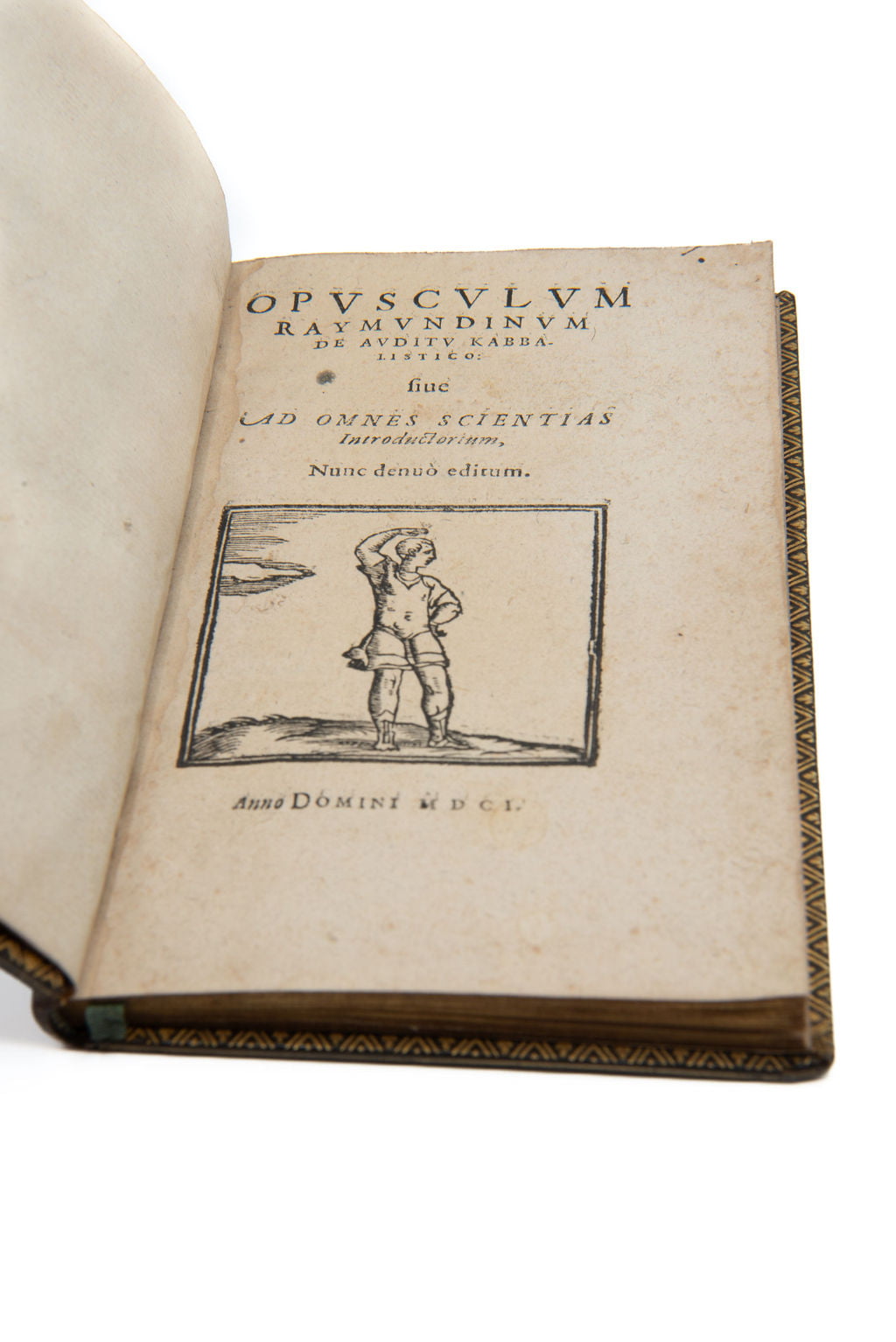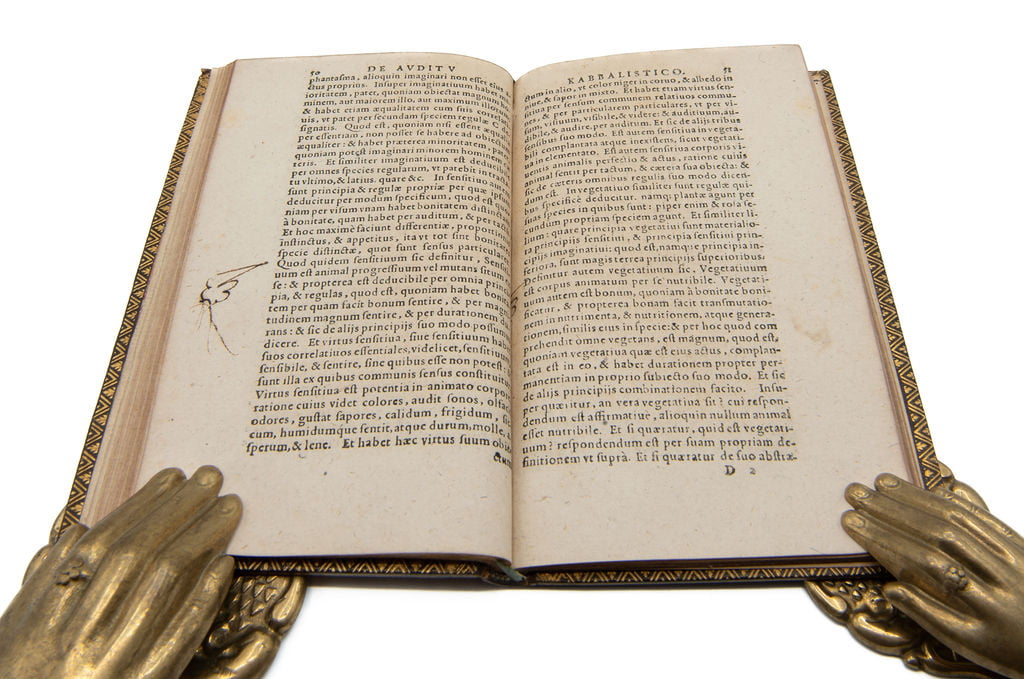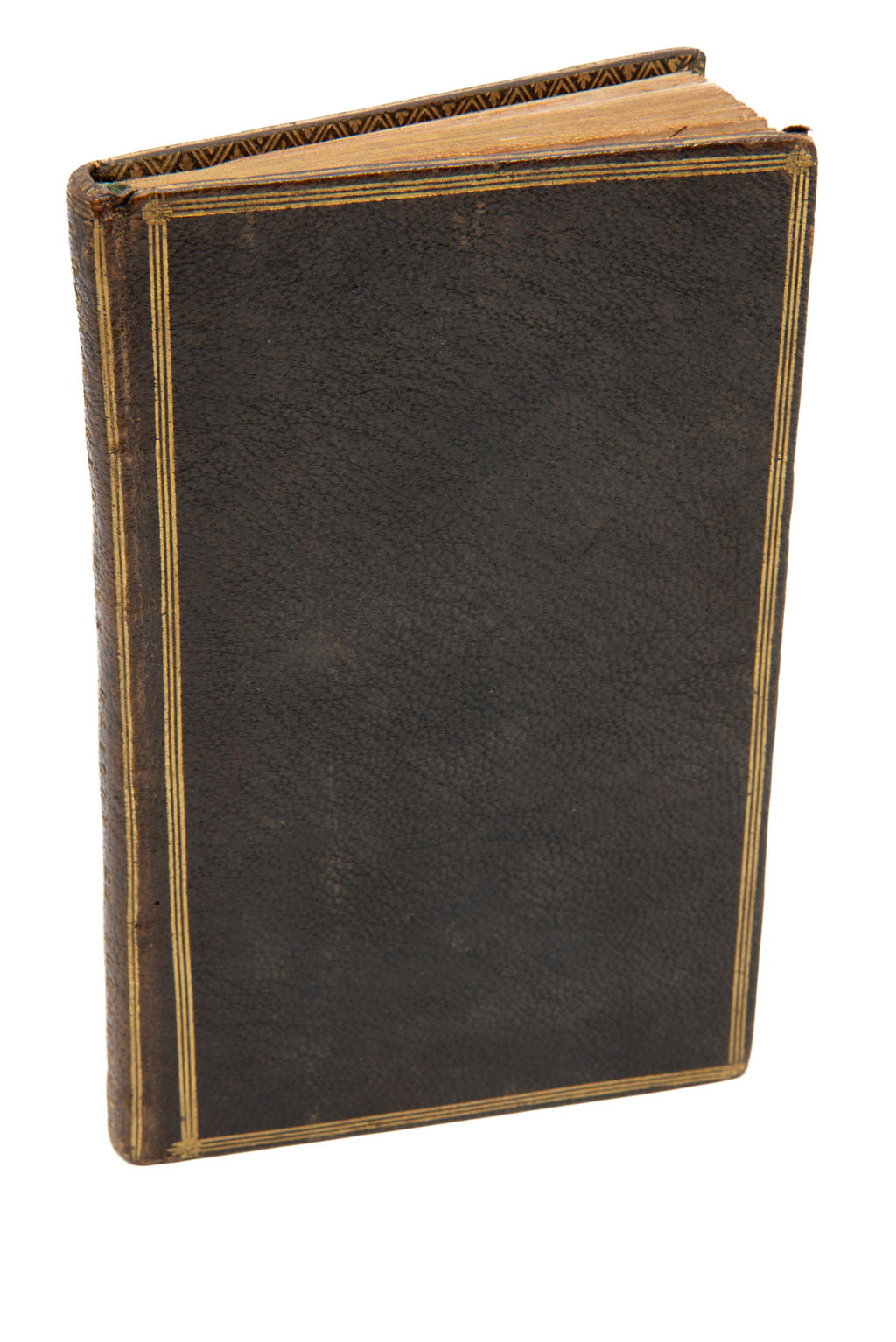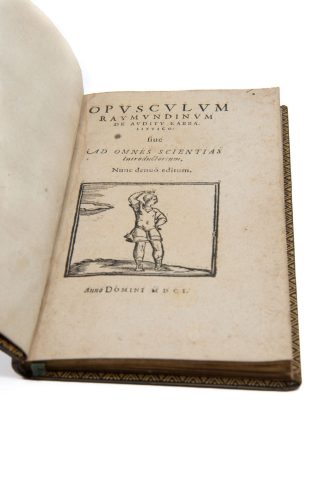LLULL, Ramon.
Opusculum Raymundinum de Auditu Kabbalistico.
N. pl., N. Pr., 1601£2,750.00
8vo. Pp. 117 (i). Roman letter. Woodcut of man in landscape to tp, woodcut diagrams within text. Ornamental woodcut head and tail pieces and initials. Label of Leo S. Olschki to pastedown, bookplate of Edward Sandford Burgess to fep, occasional contemp. marginalia, later numerals to rear ep. Light age browning, occasional marginal spot, intermittent foxing. A good copy in C1800 olive crushed morocco, triple fillet border, spine gilt, aeg.
Born in the Kingdom of Majorca, Lull (or Raymond Lully or Raimundus Lullus, c.1232-c.1315) was a Franciscan tertiary, philosopher, and author of numerous works on theology, philosophy, astronomy and computation in Catalan, Latin and Arabic. Lullism developed from his philosophical approach, which examines ‘truth’ by deciphering and manipulating the letters of the alphabet. In fact, this complex philosophy anticipated work of elections and computational theory several centuries before their advent. Lull’s journey into mysticism began when he experienced a religious epiphany in which Jesus Christ appeared to him suspended in mid-air. Lull was a prolific missionary and preacher, especially in Northern Africa, but was beaten and stoned in Bougie, Algeria, dying the following year. He is one of the most important Spanish philosophical and religious figures in early modern history, the Ramon Lull University in Barcelona named in honour of his contributions to Spanish academia.
“How successful was the thesis of ‘De auditu kabbalistico’ in the 16th and 17th centuries, could be shown by the impressive reception of this treatise, which ranges from about Giordano Bruno, Claude Duret, Johann Heinrich Alsted and Athanasius Kircher up to Leibniz” (G. Kurz [ed], Meditation und Erinnerung in der Frühen Neuzeit, p 115; trans.). This is the first book that deepens and broadens the ars combinatorial method invented by Lull through which, by using diagrams, figures, or words, one could connect information in each field to get closer to universal knowledge as well as to be able to memorize it.“The rarest and most sought-after of Raymond Lulle’s works” (Biblioth. Stanislas de Guaita no. 530 and 1565, which only has the ed. of 1601).
Interestingly, the total authorship of Lull has been contested, the work being also attributed to Pietro Mainardi (b. 1456). Mainardi was a prolific Kabbalist scholar and follower of Lull and Lullism. He did not sign the work, and therefore later editions like the present became ‘Opusculum Raymundinum’. Its success is attested by a number of documents and printed texts in which quotations from this work were combined with Lull’s own Kabbalistic texts. This is the third edition recorded in Palau, following 1518 and 1578 editions.
“Le plus rare et le plus recherché des ouvrages de Raymond Lulle, avec une vignette naïvement gravée sur bois et des figures hors texte. Ad. Franck dans son ouvrage sur la Kabbale consacre un long article à R. Lulle et à cet opuscule.” (Caillet 6846).
Palau 143.865; Kraus Duveen has the 1578 edition.In stock





